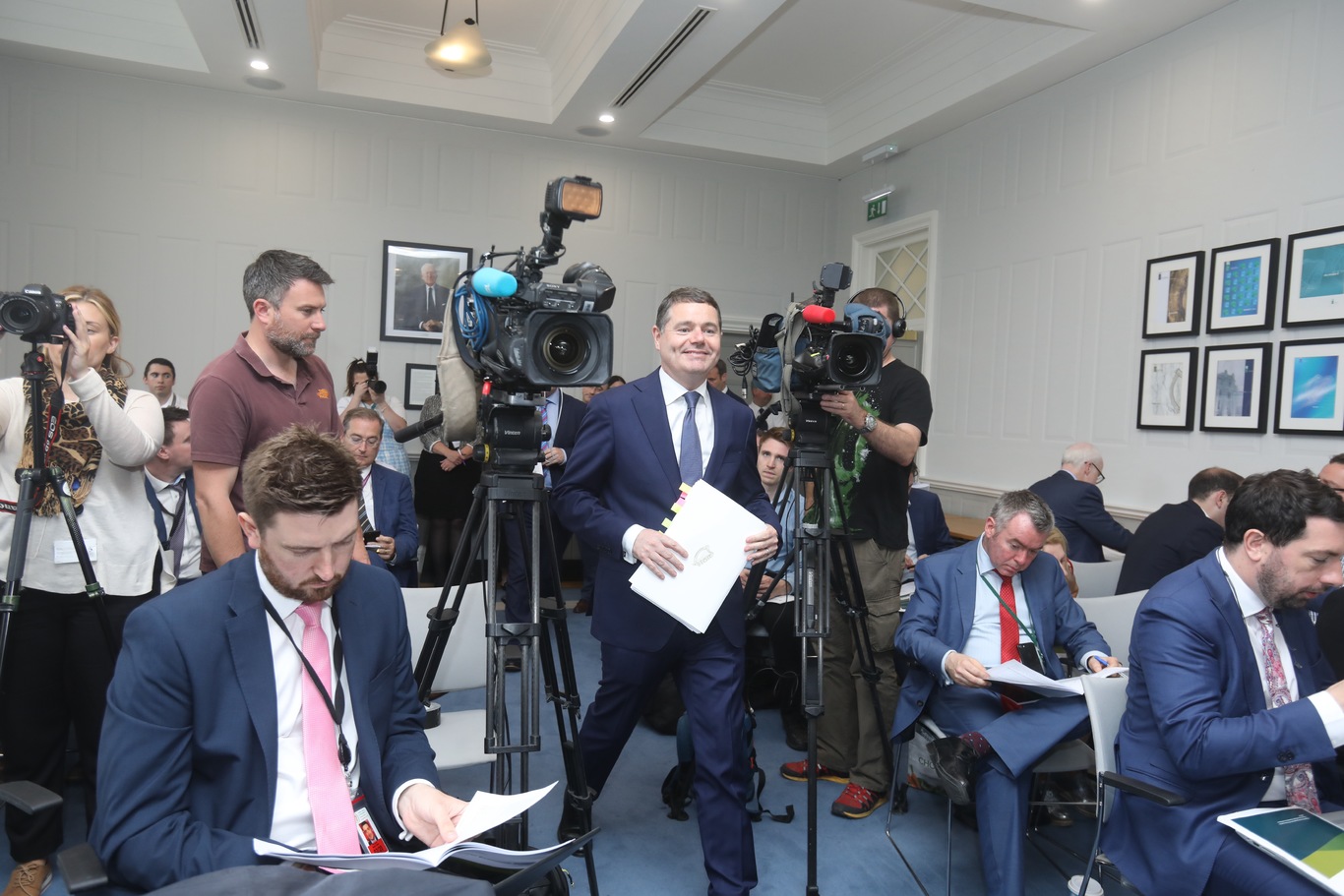Your crash course in... Ireland's Summer Economic Statement
Minister for Finance Paschal Donohoe set out the deal or no-deal scenarios as Ireland braces for Brexit.
The economic situation in Ireland might currently be in good health, but there is a great big dark cloud on the horizon that could rain on the State’s budget parade.
As Finance Minister Paschal Donohoe set out the Summer Economic Statement (SES) earlier today, he had to wrestle with the question of how exactly Britain will leave the EU.
Deal or no-deal?
With the budget set to be delivered on 8 October and Britain due to leave the EU on 31 October, Donohoe presented two scenarios.
“It is clear that the external environment is becoming increasingly challenging and at this point in time a disorderly Brexit is a real possibility. That is why I am setting out two budgetary scenarios in this SES – the first involves an orderly Brexit occurring, while the second involves a disorderly scenario,” he said.
By presenting the two scenarios Donohoe has given the government until September to make a decision on which to run with, when it hopes more information is available to inform what comes next.
Scenario 1: an orderly Brexit
Budget 2020 involves a budgetary package of €2.8 billion for 2020. Should Brexit actually end up running smoothly, the State will run a predicted surplus of 0.4% of gross domestic product, according to the finance minister.
Having already committed to capital projects and public sector pay – along with a €200 million “expenditure reserve” set aside for the National Broadband Plan and the National Children’s Hospital – this would leave the state with around €700 million to play with for any tax cuts or new spending.
Scenario 2: a disorderly Brexit
Donohoe flagged today that a disorderly Brexit could involve a headline deficit in the region 0.5% to 1.5% of GDP for next year, depending on the magnitude of the economic shock.
This would allow for the “automatic stabilisers” to provide counter-cyclical support – such as to absorb an increase in social protection payments and falling taxes – allowing for a smaller surplus; and temporary, targeted support for the sectors most affected by Brexit.
What was the reaction?
Ian Talbot, the Chambers Ireland chief executive, acknowledged the extremely difficult scenario the Government faces this autumn.
“On one hand, the economy is experiencing continuous growth with unemployment is at its lowest level since the height of the Celtic Tiger. On the other hand, should the worst-case scenario come to pass this autumn, our growth projections could be wiped out,” he said.
“However, deal or no-deal, the commitments to invest in capital infrastructure made as part of the National Development Plan must not be side-lined,” he added.
Talbot said that the economy cannot endure another “lost decade”, where investment in infrastructure and housing was minimal. He added that ongoing housing shortages, infrastructure deficits and the demands that the transition to a low-carbon economy will entail, must be addressed in Budget 2020.
Get our Daily Briefing with the morning’s most important headlines for innovative Irish businesses.






